Contents
- How to take antibiotics?
- Is it justified to ban alcohol while taking antibiotics?
- The reaction of the body to the combination of alcohol and antibiotics
- What antibiotics should not be taken simultaneously with alcohol?
- Antibiotics, the intake of which is not prohibited at the same time as alcohol
- When is it safe to drink alcohol after taking antibiotics?
Not a single doctor will give an answer to the question of how long you can take alcoholic beverages while taking antibiotics. The mechanism of action of drugs from this pharmaceutical group is so different that it is impossible to calculate the body’s reaction to alcohol. In addition, diseases for which antibiotics are taken impose restrictions on part of the patient’s diet.
How to take antibiotics?
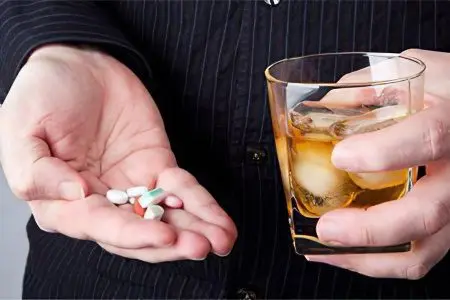
Drugs that are effective against pathogenic bacteria can be dangerous to the health of the patient. A course of antibiotic treatment should not be started without a doctor’s recommendation and good reason. The main indications are a bacterial infection, which an organism with insufficiently strong immunity cannot get rid of on its own. Antibiotics destroy the cellular structure of pathogenic microorganisms, helping to cope with the disease.
Rules for taking antibiotics prescribed by a doctor:
To maintain the desired concentration of the active substance, the recommended dosage and frequency of administration should be strictly observed.
The duration of antibiotic treatment is determined by the attending physician, on average this period is 5-14 days. Long-acting drugs can be taken within 1-3 days.
Antibiotics are washed down only with clean non-carbonated water.
The intake of drugs is accompanied by a restriction in the diet of alcohol and fatty foods.
Is it justified to ban alcohol while taking antibiotics?
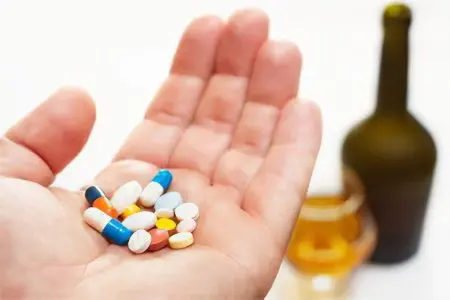
Restrictions on alcohol consumption are among the mandatory requirements for a patient taking antibiotics. These requirements also apply to the period of rehabilitation after illness.
Grounds for contraindications to drinking alcohol during a course of antibiotics:
Once in the digestive and circulatory system, alcohol breaks down into simple chemical compounds. Interacting with each other, alcohol molecules and antibiotic molecules can create substances that are toxic to the body.
The effectiveness of the active substance of antibiotics is markedly reduced against the background of alcohol.
The negative impact of antibiotics mixed with alcohol on the functioning of the liver and the whole organism is multiplied when they are taken simultaneously.
It is impossible to predict the reaction of the body to the combination of alcohol and drugs.
According to medical observations, the effectiveness of antibiotic therapy is higher in those who did not take alcohol during and after the illness.
The reaction of the body to the combination of alcohol and antibiotics

One of the consequences of combining alcohol and antibiotics is blocking the ethanol breakdown reaction in the human body. The consequences of such a metabolic disorder are the accumulation of acetaldehyde in tissues and organs due to impaired excretion.
Possible consequences of drinking alcohol while taking antibiotics:
Violation of the functioning of the liver, when the metabolism of alcohol and drugs, proceeds atypically and depresses the work of the organ. Instead of removing waste products, the liver accumulates toxins in its cells.
Severe allergic reactions develop.
Intoxication of the body occurs, its symptoms are nausea, unbearable headache, convulsions, vomiting and dizziness.
Decrease or increase in blood pressure.
Sweating and redness of the skin.
Hangover syndrome on the background of taking antibiotics, its consequences – a violation of the psyche, clouding of reason.
What antibiotics should not be taken simultaneously with alcohol?
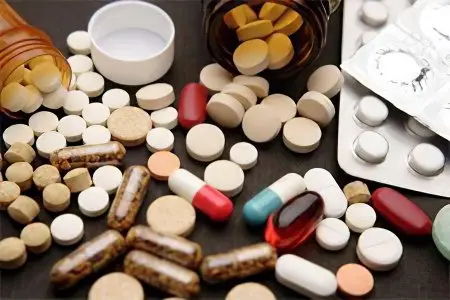
To avoid death, you should refrain from drinking alcohol during the treatment of complex infections and 5 days after the end of the course of therapy.
Groups of drugs that are absolutely incompatible with alcohol:
Aminoglycosides (do not combine with other chemical compounds, including alcohol),
Levomycetins (even without interaction with alcohol cause severe side effects, which are aggravated by interaction with ethyl alcohol);
Drugs for the treatment of tuberculosis, leprosy;
Ketoconazole;
Lincosamides (extremely toxic to the liver and central nervous system);
Tetracyclines (alcohol neutralizes the action of antibiotics that block biochemical processes in the body of pathogenic bacteria);
Nitroimidazoles (ban on alcohol up to 7 days after the end of the course of these antibiotics);
Bleomycin;
Cephalosporins (mixture with alcohol leads to tachycardia and other serious consequences due to a disulfiram-like reaction);
Macrolides (double the toxic effects of alcohol on the liver and brain).
Antibiotics, the intake of which is not prohibited at the same time as alcohol
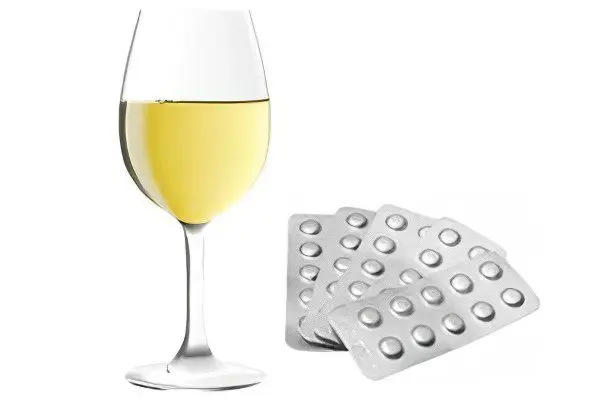
List of antibacterial drugs that do not interact with alcohol:
Penicillins are broad-spectrum antibacterial drugs;
antifungal agents;
Vancomycin is a drug from the group of glycopeptides that blocks the synthesis of the bacterial cell wall;
Rifomycin is a drug from the ansamycin group, used to treat many diseases;
Heliomycin is a drug for the treatment of diseases of the upper respiratory tract and infectious dermatitis.
Even if the joint use of antibiotics and alcohol theoretically cannot harm the body, we must not forget about the individual reaction of the body to such combinations. It is advisable not to drink alcohol for 3 days after taking the last dose of antibiotics.
When is it safe to drink alcohol after taking antibiotics?
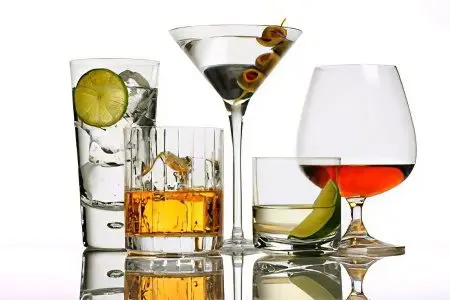
According to experts, the active substance of antibiotics can be in the body for at least 3 days. Long-acting drugs are distinguished by a long decay period – 10-24 days. Consulting a doctor will help to avoid negative consequences from the combination of incompatible substances. If for some reason it is impossible to get it, you need to carefully study the instructions for using the antibiotic. Important parameters to pay special attention to:
The duration of the course of treatment;
Compatibility of the active substance with ethyl alcohol;
The time during which you can not drink alcohol after taking the last dose.
If such information is not available, this does not mean that toxic effects cannot occur. It is necessary to withstand a period of at least a day to remove the components of the drug from the body. An organism whose immunity is impaired after a disease is not strong enough to be exposed to ethyl alcohol toxins.









